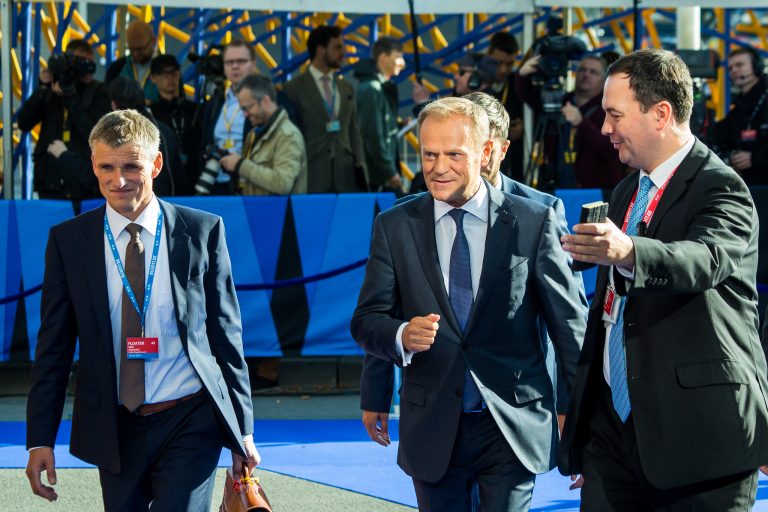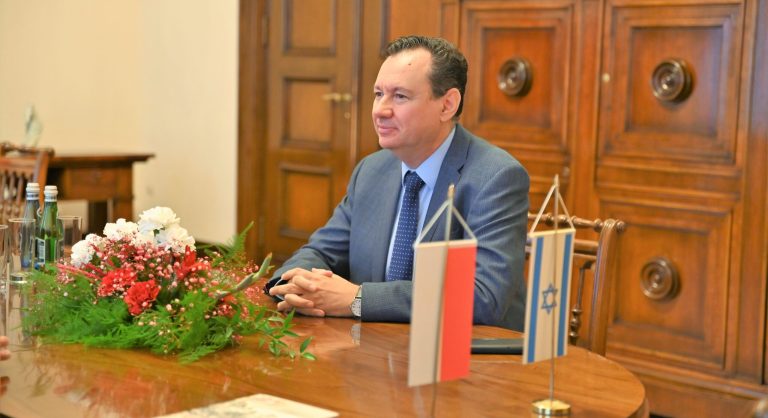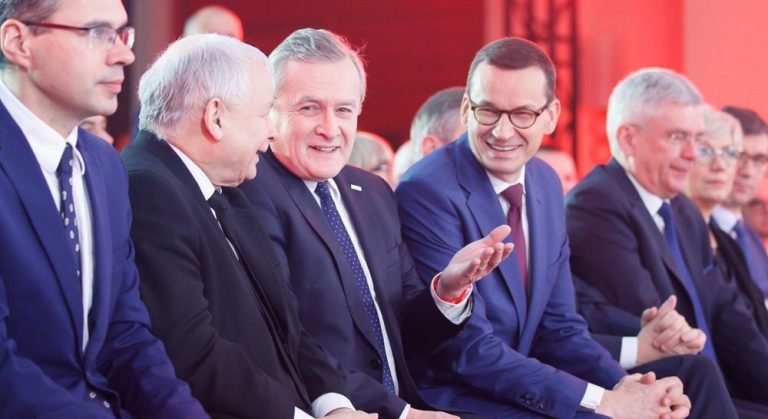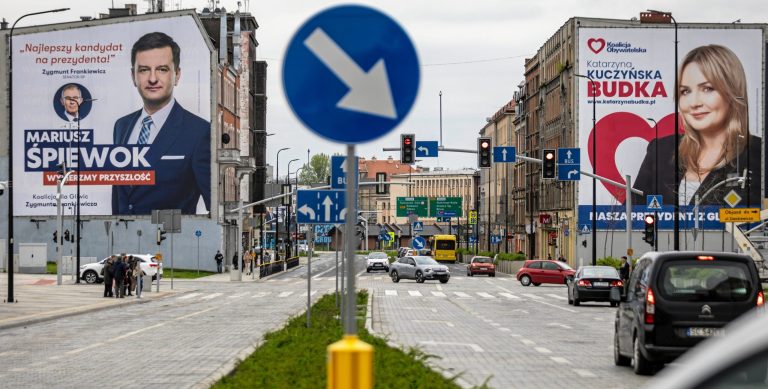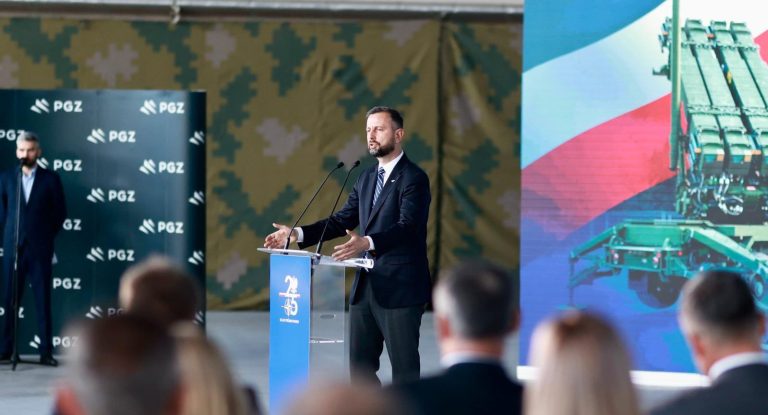Pro-Putin youths block Polish delegation from cemetery of Stalinist victims
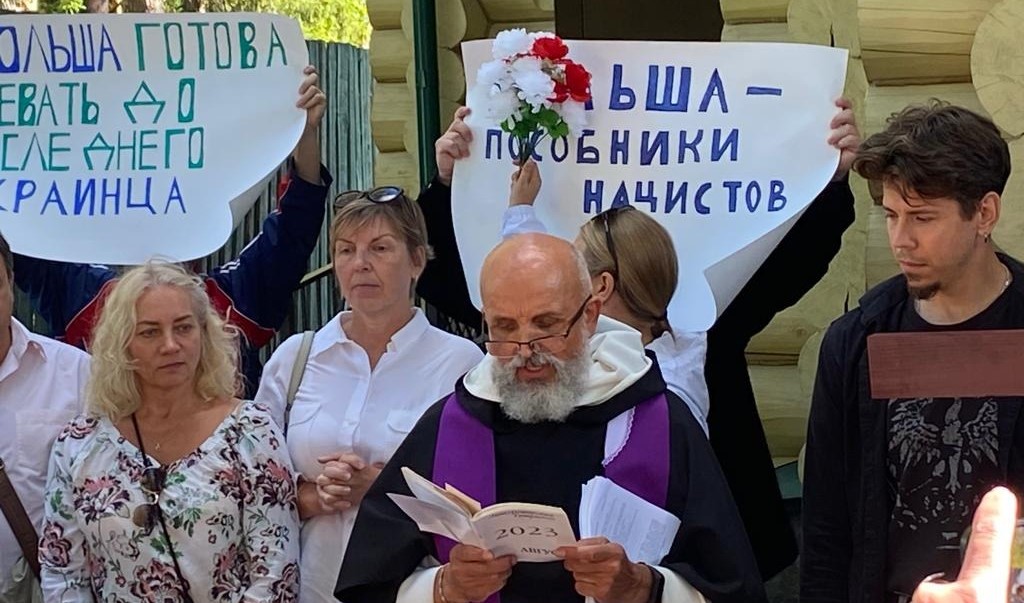
A group made up of Poles living in St Petersburg, European diplomats and members of a leading Russian human rights group were prevented from entering a cemetery for victims of Stalinist repression. Their path was blocked by a group of pro-Putin youths, who displayed anti-Polish slogans.
The delegation had hoped to commemorate those killed in the “Polish Operation” of 1937-38, an ethnic cleansing action against Poles in the Soviet Union during which over 100,000 were sentenced to death.
However, when they arrived at a cemetery dedicated to victims of Soviet political repression in Levashovo, St Petersburg they found that the gates were closed. A sign said the site was shut for “technical” reasons.
In addition, a group of activists from the Young Guard of United Russia (MGER), the youth wing of Vladimir Putin’s ruling party, “were waiting for us” and “behaved aggressively”, Poland’s consul in St Petersburg, Grzegorz Ślubowski, told the Polish Press Agency (PAP).
The youths held up signs saying “Poland: a Pentagon puppet”, “Poland: modern Nazism”, “Poland: helper of the Nazis” and “Warsaw, hands off the monuments of Russians”, reports Belsat, a Polish-based Belarusian broadcaster.
The visiting group – which as well as Poles contained consuls from Norway, Sweden and Germany and members of Russian human rights group Memorial – gathered for prayer and the reading of poems outside the cemetery. They placed a cross and flowers under the gate.
Last month, a monument to Polish victims disappeared from the cemetery, reports Polish broadcaster TVP. Ślubowski noted yesterday that the Russian foreign ministry has not responded to a request from Poland for information about the monument.
It is estimated that around 4,000 Poles are among the 40,000 victims of Soviet repression buried at the Levashovo Memorial Cemetery.
Poland has protested against the removal of Polish flags from two sites in Russia where thousands of Polish officers murdered by the Soviets in WWII are buried https://t.co/ApKF9Jz2Q4
— Notes from Poland 🇵🇱 (@notesfrompoland) June 27, 2022
Recent years have seen increased tensions between Poland and Russia over history, in particular as the Kremlin has pushed a revisionist narrative that downplays Soviet crimes.
Putin himself has argued that it was Poland’s own “aggressive policies” in the interwar period that resulted in the Nazi-German invasion of 1939. Russia has continued to deny that the Soviet invasion of Poland two weeks later was an invasion at all.
Last month, Putin declared that Poles must be “reminded” that their western territories were a “gift from Stalin”. In actual fact, while Poland obtained some former German lands in the west after the war, it lost an even greater amount of land to the Soviet Union in the east.
Poles must be „reminded” their western territories were a „gift from Stalin”, said Putin today
He also repeated unsubstantiated claims that Poland is planning to take territory from Ukraine and warned Russia would respond to any aggression against Belarus https://t.co/DIRMhB1Kme
— Notes from Poland 🇵🇱 (@notesfrompoland) July 21, 2023
Putin’s remarks came shortly after Russia ordered Poland to close its consulate in the city of Smolensk due to Warsaw’s “unfriendly, anti-Russian actions”. The Polish government said the move was part of Moscow’s efforts to “falsify history and deny responsibility for crimes committed by the Russian state”.
Meanwhile, last year saw the Russian authorities remove Polish flags from two sites in Russia where thousands of Polish officers murdered by the Soviets during World War Two are buried. Russia has also sought to deny Soviet responsibility for those crimes.
Moscow has itself accused Poland of attempting to distort history by removing monuments to the Red Army’s liberation of Poland from Nazi-German occupation. The Poles note that the Soviets did not in fact liberate Poland, but instead imposed decades of communist rule.
Notes from Poland is run by a small editorial team and published by an independent, non-profit foundation that is funded through donations from our readers. We cannot do what we do without your support.
Main image credit: KG RP w Petersburgu via Belsat

Daniel Tilles is editor-in-chief of Notes from Poland. He has written on Polish affairs for a wide range of publications, including Foreign Policy, POLITICO Europe, EUobserver and Dziennik Gazeta Prawna.

